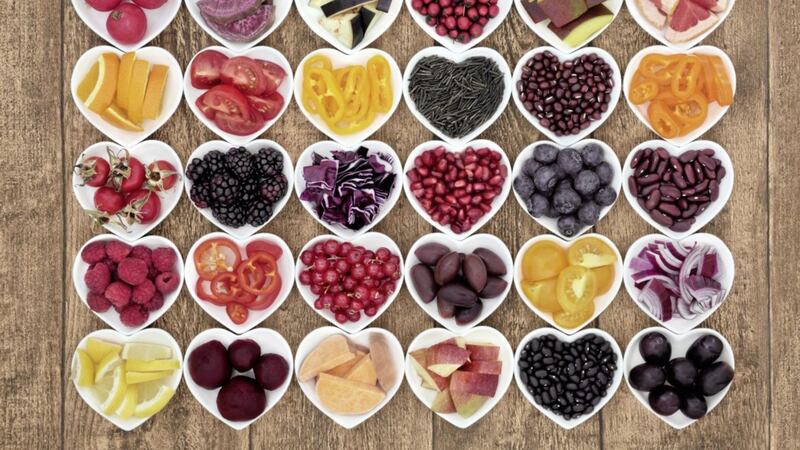NORTHERN Ireland has one of the highest rates of heart disease in the world, with heart attacks and strokes remaining our biggest killer.
There are several risk factors thought to be linked to an increased risk of heart disease, including high blood pressure and cholesterol levels, stress, poor eating habits, genetics, smoking and being overweight. That’s the bad news.
The good news is that we can reduce our risk of heart attack or stroke by making a few simple changes to our diet and lifestyle.
Our hearts constantly pump blood around our body, supplying organs with oxygen and vital nutrients to keep us going. The food we eat, the type of exercise we do (and how often) and the stress we are under have a massive impact on how healthy our tickers are.
:: Know your numbers
Do you know your cholesterol, LDL, HDL and blood pressure? Most of us don’t give our health a second thought until something goes wrong, or we feel under the weather, but prevention is always better than cure. Being aware of how healthy you are is the first step in taking responsibility for your health. If it’s been a while since your last GP check-up, maybe it’s time for an MOT.
:: There are two types of cholesterol
LDL (high density lipoprotein) carries cholesterol to the cells that need it, but if there's too much cholesterol for the cells to use, it can build up in the artery walls, leading to disease of the arteries. This is why LDL is sometimes known as 'bad cholesterol'.
HDL (low density lipoprotein) carries cholesterol away from the cells and back to the liver, where it's either broken down or passed out of the body as a waste product, so HDL is the one we know as 'good cholesterol'.
It’s always a good idea to get feedback on your total cholesterol, HDL and LDL cholesterol so you know the balance of good and bad cholesterol.
Here are the recommended levels, according to the NHS:
Total cholesterol: 5mmol/L or less
LDL: 3mmol/L or less
HDL: 1mmol/L or more
A healthy blood pressure is between 90/60mmHg and 120/80mmHg.
:: Eat your way to a healthy heart
The Mediterranean diet is often hailed as the best way to eat to help keep our hearts healthy. Here are a few healthy habits we could all adopt to help ourselves:
:: Eat plenty of healthy fats. Omega 3 from oily fish is thought to be particularly important, so aim to eat salmon, mackerel, trout, sardines or herring two or three times a week.
:: Have a handful of nuts and seeds (not the salted kind!) every day. Walnuts, almonds and flaxseed are thought to have particular benefits for heart health.
Delicate fats found in sunflower oil and vegetable oils are easily damaged by high temperatures, so substitute battered, bread-crumbed or deep-fried food for grilled, baked or steamed meat or fish, and eat less crisps and chips.
:: Eat more plant sterols for a healthy cholesterol balance: Found in oats, beans, peas, lentils, chickpeas, fruit and vegetables.
:: Add plenty of herbs and spices, such as garlic, turmeric, thyme and rosemary.
:: Use olive oil for dressings and drizzles.
:: Eat at least five portions of (different coloured) fruit and vegetables.
:: Cut back on coffee if you know you have high blood pressure.
:: Chill out – relax and take it easy. Make rest and relaxation a part of your daily routine. Read a book, practice mindfulness, have a bath or go for a walk. Anything that helps you switch off and unwind is good for your heart, and your blood pressure.
:: Move your body every day. Daily exercise is an essential ingredient for heart health.
You can find out more information about heart health from NI Chest, Heart and Stroke (nichs.org.uk).








